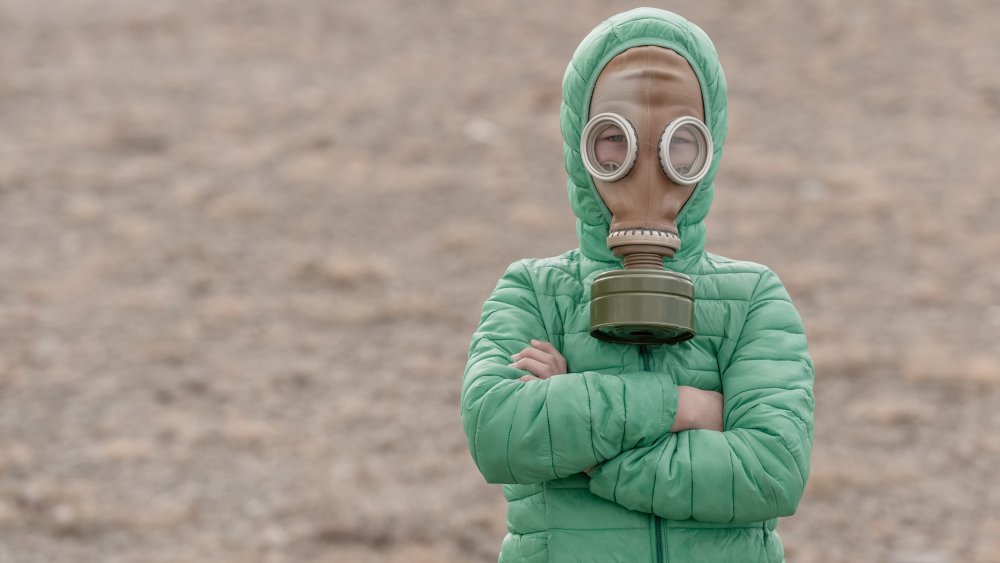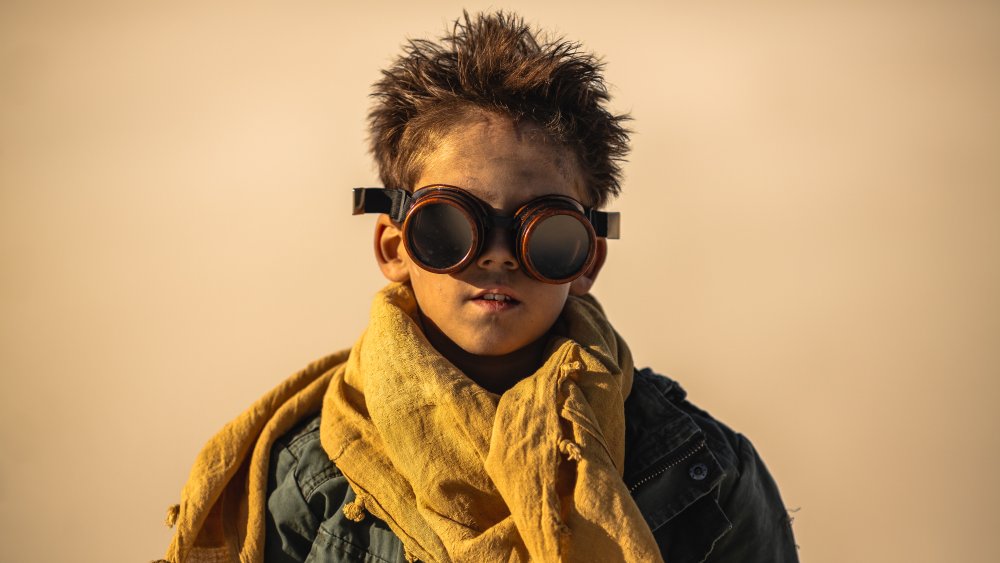The Real Reason Doomsday Preppers Are Obsessed With Clothing
Doomsday preppers love all things gear, because until a real emergency hits, it's one of the few ways they can maintain an active interest in what otherwise might be considered a fantasy-type role playing experience.
It's a bit of a psychological catch-22. While preparedness is great, preppers drop big bucks for a scenario that they hope don't occurs, and often never does. A quick price check on apparel at doomsdayprep.com reveals that a "tactical fleece" will set you back about $110 bucks — presumably because of its "Backup Belt System™ compatible" hidden chest pockets, which provide "quick and reliable access to a sidearm or accessories."
Maybe it's the microphone clips on each shoulder, or the zippered handwarmer pockets. Either way, it's a very specific, feature-heavy garment which seems a little detached from reality as we know it.
Armageddon chic
According to Richard Mitchell, professor emeritus of sociology at Oregon State University and author of Dancing at Armageddon: Survivalism and Chaos in Modern Times, "The costuming is essential."
That's not to say preppers are nothing more than closeted fashionistas. Mitchell argues that a prepper's obsession with clothing is still grounded in a utilitarian ideal. It's just that the ideal isn't totally practical. "It's about how your friends respond to you. Sociologists call it impression management and anticipatory socialization — you dress like you imagine you'll want to be in the future."
Prepping for style
America is a commodity-centric culture, and also a fearful one. According to Tough Nickel, the average American spends 25 percent more than they earn. Meanwhile, we absorb news that is designed to capitalize on our deepest fears, using anxiety in place of substance.
It could be argued that those who enjoy purchasing gear for an imagined disaster are a product of where these two worlds meet — fear and the fantasy of security through material means.
But to paint all preppers the same shade isn't quite fair. Document cites research that many preppers do their prepping more out of a sense that the government isn't totally prepared to respond to emergencies. The aftermath of natural disasters like Hurricane Katrina would seem to prove them right, making them seem more like volunteer firefighters than xenophobic schizoids.
Whether history will prove preppers right remains to be seen but for now, dressing like a prep is still a fashion reserved for grizzled veterans and pubescent high schoolers.


